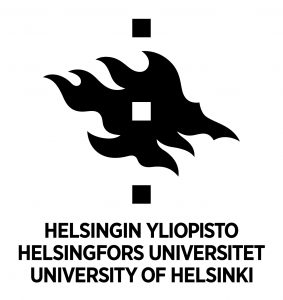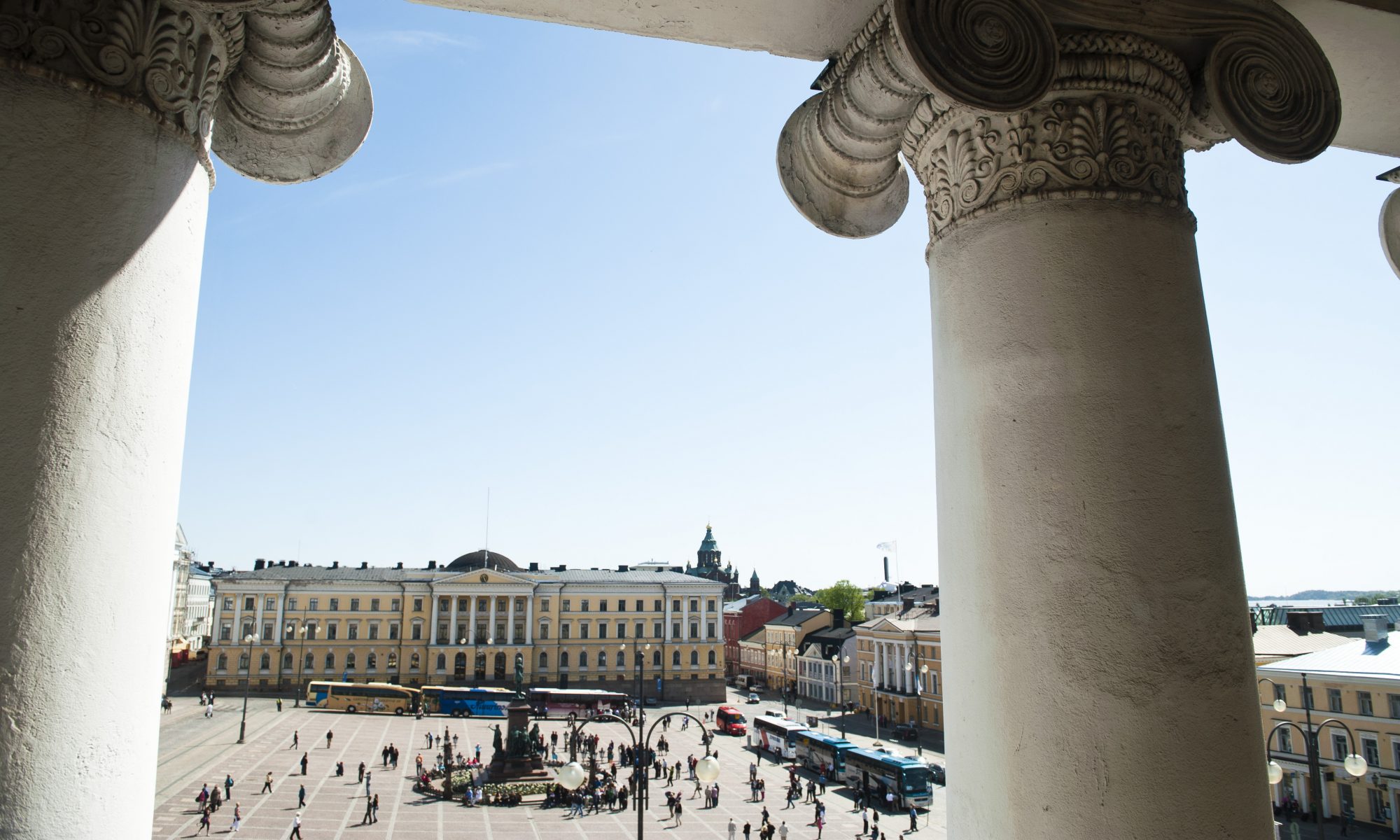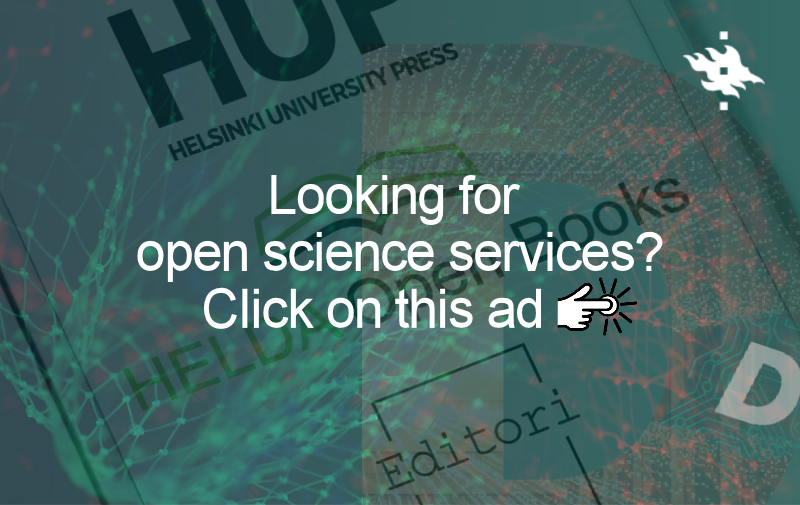In recent years, open science has progressed in leaps and bounds in both Finland and other countries. In autumn 2022, the University of Helsinki set up an open science coordination group, with representatives from every campus as well as research management and services. The group is tasked with coordinating the development of open science and teaching at the University. In this blog post, the group’s members discuss the work ahead and the related challenges.
(Tämä artikkeli on saatavissa myös suomeksi.)
 The University of Helsinki now has its own open science coordination group to increase dialogue among different parties at the University. Operating as part of the Research Council, the group comprises members from academic units on all campuses, as well as from research management and open science services.
The University of Helsinki now has its own open science coordination group to increase dialogue among different parties at the University. Operating as part of the Research Council, the group comprises members from academic units on all campuses, as well as from research management and open science services.
The group’s establishment in autumn 2022 was based on the strategic plan of the University of Helsinki for 2021–2030, which highlights open science as one of the leading principles. The establishment of an open science coordination group was one of the measures specified in the implementation plan for 2021–2024 (see the Flamma intranet).
The coordination group will monitor and coordinate the development of open science and teaching at the University. Its goal is to create a general understanding and build knowledge to support decision-making concerning open science. The group will serve as a forum for discussing matters related to common policies and practices and for building closer cooperation in decision-making between the University level and the levels of individual units and disciplines. The group’s activities can be followed in the Flamma workgroup area. (See also the coordination group’s founding document in the Flamma intranet).
The coordination group for open science consists of Vice-Dean Auli Toom (Faculty of Educational Sciences), who chairs the group, University Lecturer Heidi Kidron (Viikki, Faculty of Pharmacy), Professor Jari Lahti (Meilahti, Faculty of Medicine), Professor Tuuli Toivonen (Kumpula, Faculty of Science), Associate Professor Mikko Tolonen (City Centre, Faculty of Arts), IT Manager Minna Harjuniemi (IT Centre), Director Anssi Mälkki (Research Services) and University Librarian Minna Niemi-Grundström (Helsinki University Library). Senior Advisor Tiina Käkelä (Research Services) is the group’s secretary. In this blog post, all of the group members except for Toivonen, Harjuniemi and Käkelä answer the following questions:
- What interests you in open science?
- In your opinion, what are the main challenges for the implementation of open science at the University of Helsinki?
- In terms of the academic unit or service you represent, what do you expect of the coordination group’s activities?
1. What interests you in open science?
”I’ve seen the extraordinary work carried out with open-access data and have personally had the opportunity to use openly accessible original materials and results. Meanwhile, in my own research projects, I’ve found myself balancing between the openness of results and data, on the one hand, and strict data protection regulations, on the other. This struggle has been particularly noticeable when drawing up a research plan and describing to potential funders, for example, how the requirements for open science can be met, knowing full well that openness is often impossible due to aspects such as privacy and data protection. This is one of the things I find interesting. What conflicts arise when putting open science into practice? How can the University support researchers in this respect?” (Jari Lahti)
”I’m interested especially in how we can make open science part of our daily life. While open access publishing is familiar to me, I’m not as well acquainted with making learning materials and research data openly accessible. That’s why I’d like to learn how the process can be made easier and smoother.” (Heidi Kidron)
”I’ve been involved in the development of open science practices and institutions for a little over a decade. I’m fascinated by important and complex concepts, and open science is one of them. I’ve recently been grappling with research data and various aspects related to their openness, especially in the context of the humanities. We’re striving to promote openness both at the grassroots level (our own research) and through the construction of research infrastructure (FIN-CLARIAH and DARIAH-FI), which requires us to consider both principles and practical matters.” (Mikko Tolonen)
I’m fascinated by important and complex concepts, and open science is one of them.
”The added value of openness comes from knowledge, competence and data being more widely available for reuse. It will be easier for future generations, in particular, to find and use publications and data, perhaps using new methods to do so.” (Anssi Mälkki)
”I’m interested in open science across the board, as well as the various subfields and how they intertwine. The overarching principle of open science is brilliant – that we conduct research and publish the results as openly as possible. I believe this benefits researchers, the University and society at large. On the whole, open science can mean many different things in research work. I also serve as a peer reviewer for many journals in my field and chair my field’s evaluation panel in Publication Forum, a system supporting the quality assessment of research output. In these duties, topics such as open-access publication, open peer review and open data are present all the time.” (Auli Toom)
”I’m interested in everything, but especially in making different types of materials (publications, research data, learning material) openly accessible, and in questions concerning the development of open science competence. In the past decade, I’ve handled duties that have allowed me to promote the prerequisites for open science in various ways. I’ve taken part in developing and managing services for open-access publication and research data management, in converting Tampere University Press into an open access (OA) publishing house and in negotiating procurement contracts incorporating OA elements with publishers. Recently, I’ve also been involved in drawing up a national policy for open learning and open educational resources.” (Minna Niemi-Grundström)
2. In your opinion, what are the main challenges for the implementation of open science at the University of Helsinki?
”Speaking as a researcher, perhaps the lack of grassroots instructions and practices.” (Heidi Kidron)
”According to the results of open science surveys, there is still a ways to go in the promotion of open learning. In general, limited financial resources pose a challenge to the promotion of open science, as does the development of openness-related competence across the organisation.” (Minna Niemi-Grundström)
”As regards conflicting demands on openness: do researchers dare openly publish their results or make their materials openly available in databases? Where do researchers receive support if the incorporation of materials or results into databases requires considerable effort?” (Jari Lahti)
”I believe incentives to open science are the most important area of development. Take, for example, open-access publishing, which the funding model of the Ministry of Education and Culture encourages at the University level. How do you extend this to the level of individuals? The operating cultures of different disciplines still determine whether the laborious process of making materials openly accessible earns you merit or not.” (Anssi Mälkki)
Where do researchers receive support if the incorporation of materials or results into databases requires considerable effort?
”We’ve done a great deal of work at the University of Helsinki to promote open science and have created policies and principles for different areas of open science. Our researchers are very competent in conducting open science, and we also have a great deal of administrative expertise, which is of key importance. One of the challenges and questions currently calling for attention is how to build a smoothly functioning, harmonised system based on the principles and practices of different areas of open science and ensure that it provides the best possible support for research, researchers’ work and the wide availability of research results in society.” (Auli Toom)
”The diversity of research is a particular strength but also a challenge for the University of Helsinki. For example, we don’t have a universal model for open research data. There’s always an exception to an exception, and different fields require different solutions. Nevertheless, we must centralise and connect the elements we can. This is both an opportunity and a challenge.” (Mikko Tolonen)
3. In terms of the academic unit or service you represent, what do you expect of the coordination group’s activities?
”I expect the group’s activities to produce streamlined models for moving from strategy to practice and vice versa – that is, moving from talk to walk, iterating and spreading the required best practices also in the humanities. I’m also the University’s Open Science Ambassador in the League of European Research Universities (LERU), and I hope this will help us efficiently learn what other top universities are doing in the field of open science.” (Mikko Tolonen)
”I’m looking forward to us building a coordinated open science system at the University of Helsinki that serves researchers, faculties, the entire University and, thereby, society at large. I believe it is important that the University of Helsinki has comprehensive common policies and principles, as well as practices supporting research in different disciplines. Researchers play a crucial role in shaping these practices. In my mind, we should look far into the future and anticipate the long-term prospects in different areas of open science. For this purpose, it is essential that all our researchers can participate in training and gain further competence in open science, and that we consider the various aspects of open science comprehensively in our doctoral education.” (Auli Toom)
I believe it is important that the University of Helsinki has comprehensive common policies and principles, as well as practices supporting research in different disciplines.
”I also expect to learn more about the practices and challenges in other fields, and perhaps find suitable solutions that we can adopt [LV1] in our own operations.” (Heidi Kidron)
”I hope the group can produce practical guidelines for open science, indicating when it is permitted – and perhaps necessary – to be less open, and when openness is allowed.” (Jari Lahti)
”I expect active collaboration and open discussion, including about the challenges related to openness. From the Library’s perspective, I hope we identify new service needs and jointly prepare policies that truly help the work of researchers, teachers and students, and their efforts to promote openness.” (Minna Niemi-Grundström)
”In cooperation with the Library and the IT Centre, University Services are developing smooth operating models and services that inspire researchers in different fields of open science. To ensure we do the right things in the right way, it is important to jointly discuss the priorities of work.” (Anssi Mälkki)

